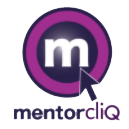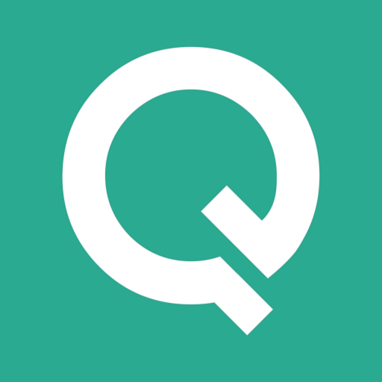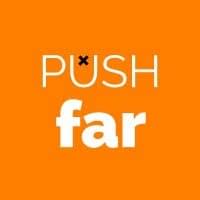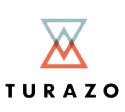Whether through formal programs or informal coaching, mentoring guides and provides valuable information to members of an organization. Effective mentoring involves a more knowledgeable or experienced group or individual guiding other individuals and helping them reach their goals by providing advice or training. Many different organizations often utilize this practice to promote personal or career development, such as with educational institutions or workplaces.
Mentoring can benefit the development of the mentor, the mentee, and the organization as a whole. However, proper mentoring involves strategic planning and resources, and the incorrect implementation of these factors can be detrimental to the organization. It is possible to gain the full benefits of mentoring in an organization by using virtual mentoring programs.
In this article...
What is mentoring software?
Mentoring software is an application that helps companies assign, manage, and analyze the success of their mentorship programs. When organizations manually organize their mentoring systems, it can leave a lot of room for error, which can harm the proper maintenance of an organization’s systems. Additionally, essential data that can be analyzed to benefit the mentoring process may slip under the radar. To avoid costly mistakes such as these, mentoring software is often used to automatically organize the mentoring for an organization.
Mentoring software systems can provide a lot of helpful features for mentoring management. Most of these software products use algorithms to match mentors with suitable mentees, with customizable factors to help organizations make the matches that align with their values. Some capabilities of these systems include specific metrics for tracking and analyzing mentee skill and knowledge development, mentee access to learning resources, connection tools for helpful communication, and effective mentor matching to promote positive training experiences.
Many organizations among many industries can benefit from mentoring software, including non-profit organizations, religious organizations, youth/education organizations, and more. What makes this possible is the features provided by mentoring software systems and the options for customizing these features to apply to an organization.
Compare the top mentoring software options
 mentorcliQ mentorcliQ |
yes | yes | yes | yes | yes |
 Together Enterprise Mentoring Together Enterprise Mentoring |
yes | yes | yes | yes | yes |
 Qooper Qooper |
yes | yes | yes | yes | yes |
 Chronus Chronus |
yes | no | yes | yes | yes |
 Pushfar Pushfar |
yes | no | yes | yes | yes |
 People Grove People Grove |
no | no | no | no | yes |
 Turazo Turazo |
yes | yes | yes | yes | no |
 PLD Mentoring Software PLD Mentoring Software |
yes | no | no | yes | no |

|
yes | yes | yes | yes | yes |
| Product | Goal Setting & Tracking | Reporting & Analytics | Content Library | Engagement Tracking | Third Party Integrations |
|---|
Standout mentoring software vendors
MentorcliQ – best mentoring software for positive user experience
MentorcliQ is a user-friendly enterprise software system that was developed to align with the needs of its users. It has impressive global capabilities for IT connectivity and integrations through the use of its system API.
Their automatic matching system saves time for users by connecting employees with suitable mentors based on their matching algorithm. Mentors can then easily review their employees’ participation using customized milestones, and the software comes with a reporting and expertise guide for tracking and analyzing progress to help users meet expectations. Furthermore, the software systems protect users with a high level of data security. Employee reward systems are a great feature of this software as well and can help improve employee satisfaction.
Together Enterprise Mentoring – best mentoring software for flexible mentee management
Together Enterprise Mentoring uses a flexible smart matching algorithm to select suitable mentors and mentees based on factors like skills, goals, and user preference. The mentoring software offers different mentorship programs based on learning goals, such as onboarding, high potentials, internal mobility, new manager, and resource & diversity groups. Mentors can then change the curriculum content to better serve their organization’s needs and even scale their mentoring based on skills and goals.
Flexible group sizes are also a nice feature of the platform for companies of all sizes, and it has options for one-on-one mentorship and group mentorship. The platform is well organized and connected as it works across all devices with single sign-on and has calendar and email integration. Employees can schedule sessions with mentors through the self-service portal, and reminders are provided through the system as well to notify users regarding goals, reports, and communication.
Qooper – best mentoring software for customization
The Qooper software provides many options for customization so that users can feel confident about the system’s functionality. The software offers a basic outline of a positive membership program, allowing the users to choose specific options that would be most helpful for their ideal organization. Users can choose between their mentorship program templates based on their goals and target population.
The system’s multi-program structure lets users run multiple programs simultaneously. Their mentor matching algorithm can provide various suggestions for matching mentors to mentees, such as self-matching, auto-match, manual matching, and bulk mentor suggestions. The algorithm can even be customized further to suit the needs of its users. Mentorship is easy for all parties with their mentorship platform and app that provide a virtual place for users to connect with fully integrated features like calendars and content.
Chronus – best mentorship software for diversity and inclusion
Chronus is a mentoring software tool meant for midsize to large businesses and organizations to humanize the work experience for its users through its many program types. This system provides training focused on exceeding the organization’s innovation while saving its staff members time and effort. It does this by minimizing the administration time through its activity dashboard, where staff members can easily access reports and surveys. This feature can give users a practical idea of their progress and workflow, and the system uses alerts/notifications to constantly keep its users on track.
As for mentoring programs, the company offers multiple programs in various formats, such as diversity mentoring, career mentoring, peer mentoring, and more, to provide the best training experience possible through personalized flexibility. In addition, Chronus’ corporate diversity and inclusion initiatives help users promote a healthy and welcoming work environment.
Pushfar – best mentoring software for career progression
Pushfar is a cloud-based mentoring software and career progression platform. The mentoring software provides customizable mentor-matching software and customizable data-capturing fields to help attune the system to its user’s objective. A perk of this software is how many options it has for connection between mentors and mentees, including goal setting, meeting scheduling, direct private messaging, and even built-in video calling, a feature that is not common among all mentorship software systems.
Through Pushfar, global mentorship programs can be set up and made available on the web and mobile apps to keep its users connected. Additionally, the software supports calendar integration, Outlook integration, GSuite integration, and HRIS integration. The career progression features of this software are unique, as they provide event recommendations and organizational conversation feeds for workforce team member development. Pushfar also provides account managers to clients for ongoing mentorship support. Some examples of this continued support include updates on system features, training for leadership, launching webinars, and support email accounts for users.
People Grove – best mentoring software for mentee engagement
PeopleGrove is a web-based mentoring software mainly targeted toward non-profit or faith-based organizations in mentorship and building communities. Additionally, they also provide mentoring tool solutions for corporations and academic advising. A positive feature of this software is that users can communicate and gain information through their discussion boards. Mentors/organization leaders can generate reports based on factors like meeting attendance and registration to gain helpful insight into improving their mentoring systems.
Progress tracking and action-item tracking allow mentors to assess the development of their mentees. In addition, mentors can adjust the lessons for their students through curriculum management to make them more in line with the organization’s desired objectives. Another great feature of this tool is that fundraising and financial aid management can be managed through the system, saving time and effort in the process of raising money for the organization and other financial aspects.
Turazo – best mentoring software for recruitment
Turazo‘s virtual recruiting program was created to help medium to large businesses attract diverse candidates. Users can manage their organization’s recruitment through the system, as well as mentor/coach matching. The program makes onboarding easy with one-on-one virtual coaching sessions for training candidates and assessing how well they would fit as members of the organization.
Onboarding data can be measured and analyzed through reporting and statistics, and mentors can use white-label solutions to help with platform customization. In addition, this software promotes relationship-based recruiting, and the activity dashboard and self-service portal encourage effective communication between mentors and mentees and a positive candidate experience. Applicant tracking and candidate management features are another helpful tool for keeping track of trainee progress.
PLD Mentoring Platform – best mentoring software for skill development
PLD Mentoring Platform is a web-based software system that provides organizations with tools for tracking the skills and knowledge of their mentees. This software can be used by various organizations, including educational institutions, membership associations, public administrations, and corporations. The system’s mentoring program management is helpful for teaching and lesson customization.
Mentorships can be set up through the system by mentors, and the learning resources and planning tools help track training progress and develop customized goals and action items. These, along with the reports provided by the system, make monitoring the skills of mentees easy. In addition, mentees benefit from the connections made available with this software, like live-chat and appointment scheduling. The user-friendly platform is integrated using external client systems and websites, providing users with helpful resources and a better overall experience.
eMentorConnect – best for mentee program involvement and resource access
eMentor Connect is a cloud-based solution intended to help organizations and businesses of all sizes with their mentoring programs. This tool provides mentees with access to information through its app and mobile knowledge transfer platform. It uses automated communication plans to motivate users, and it can be great for helping them learn and review informative resources on their own, as they please.
And if you feel as though your mentees may benefit from some features over others, this tool allows mentors to choose features to incorporate into their training, based on how well they would function with the program. Mentees can even be involved in the customization process, as the software allows them to choose their mentors and the training areas they would like to focus on.
Major features of mentoring software
Mentoring software comes with various features that help you plan, track, and analyze the progress of your mentorship strategy and ensure the success of each mentee. These are some of the key features of the best mentoring software options.
Goal setting and tracking
Goal setting and tracking is a feature that allows users to create clear primary objectives for mentees and grants mentors the ability to view their progress. It is provided with many mentoring software systems. Mentees and Mentors can work together to communicate and set achievable goals for mentee development. Users can then access these goals through the system, and mentors determine mentee progress based on how close they are to reaching them. While most mentoring software systems have goal management that lets users set goals, goal tracking is an important feature as it can give mentors a clear idea of where their mentee is in the process of reaching their goal.
Skills can be a part of goal setting and tracking as well. For example, Together Enterprise Mentoring’s goal-achievement tool has a unique feature that assesses and reports upon skills throughout the mentorship to track the mentee’s skill-building progress.
Reporting and analytics tools
Reporting and analytics tools are a feature that provides a comprehensive way to measure the progress of a participant’s training through a mentoring relationship. Many mentoring software systems use analytics to measure individual progress based on factors like goal progress and surveys. Additionally, HRIS integration reporting can be provided through this feature to allow the exchange of human resources information across platforms and more data for precise reporting and analytics. By regularly reviewing the reporting and analytics provided by their mentorship tool, users can quickly determine the success of their program and what areas may need improvement.
While not all of the products mentioned in this piece use analytics, all of them use information gathered through their software to provide valuable statistics and reporting.
Content library
Content libraries are mentoring software features that provide areas within a software system where information and resources can be stored. Mentors and mentees can plan their sessions around information accessible in the content library, and having this information available for all members to access can help save time. Content libraries can also make it possible for mentees to learn through these resources whenever they want.
Mentors can also benefit from content libraries. For example, Chronus provides users with a library that includes resources on effective mentoring practices to help mentors refine their programs and provide a better mentoring experience. If you currently have a learning management system (LMS) in place in your organization, you will want to check that your mentoring software of choice will integrate with your LMS.
Engagement tracking
Engagement tracking features can help mentors determine their mentee’s level of engagement through their actions tracked by the system. In addition, engagement Tracking can help determine how well mentees are receiving the mentorship through the software system and how involved the mentee is in the organization’s practices. Mentors can track engagement activities through systems, such as messaging, attending meetings, and more. By monitoring engagement levels, users can gain helpful information for increasing mentee engagement and mentorship effectiveness.
Third-party integrations
Third-party integrations allow systems to access additional data through external applications or export data across systems. This feature can be helpful for user experience and organization, as it can connect platforms so all of their tools can be used and accessed easily through the software system. An example of how third-party integrations can be beneficial is through calendar tool integration, which allows users to update their schedules and access important event information through their mentoring software system. Additionally, third-party integrations enable teams to export their mentoring software data to their business intelligence software to draw conclusions through reports and analytics.
Choosing a mentoring software for your organization
When it comes to determining which mentoring software tool is best for your organization’s needs, you should first decide what factors should be prioritized to reach your organizational objectives. For example, if your organization needs to refine its member onboarding, it can be helpful to go with a system with features that can assist in the recruitment process. If your organization would benefit from improving its employee retention, then software systems with engagement tracking features can be helpful.
Software systems can allow you to track the progress of many different aspects and help you gain insight into what decisions should be made to promote the growth and improvement of an organization. By determining an improvement focus area for facilitating your organization’s development, you can decide what features would be most helpful and which software tools would provide them.